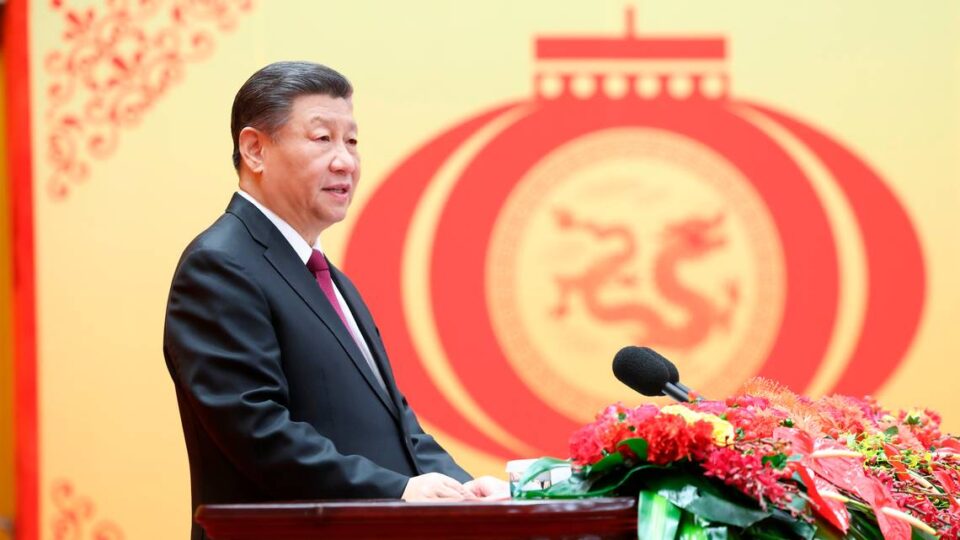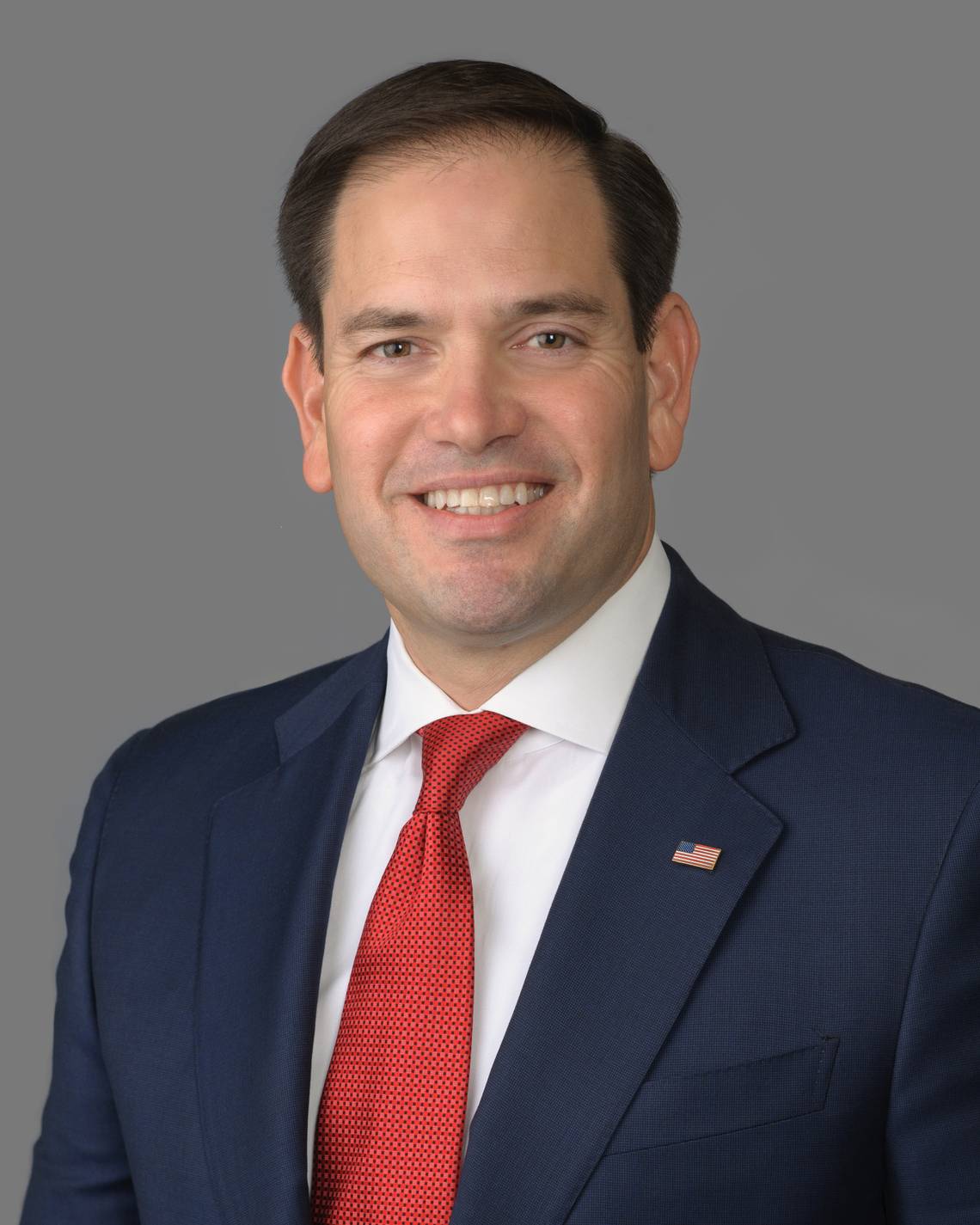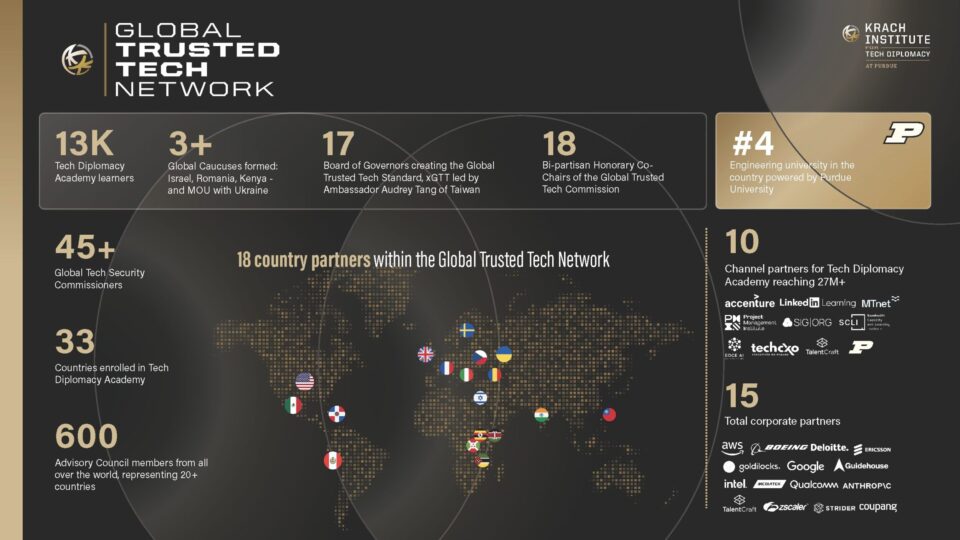Marco Rubio: The goal of China’s telecom giant Huawei is global domination
10.16.24
According to Beijing, Chinese telecom company, Huawei, is going strong. But Huawei is only “going strong” because it receives massive subsidies from the Chinese state.
At right: Chinese President Xi Jinping, also general secretary of the Communist Party of China Central Committee, is said to be bullish on China’s investments in Latin America through Huawei’s monopolization efforts.

By Marco Rubio
Miami Herald
Updated October 17, 2024 8:39 AM
“Huawei’s optical product solutions have established a leading position in the government sector and various industries.”
That was the boast from the president of Huawei Latin America Enterprise at a recent summit in Rio de Janeiro, before a crowd of “more than 300 industry consumers and partners from Brazil, Mexico, Argentina, Colombia, Chile and other countries.”
To hear Beijing tell it, the Chinese telecom company is going strong, and President Donald Trump’s efforts to cripple it with sanctions have failed.
But it would be unwise to take a totalitarian dictatorship at its word. Huawei is only “going strong” because it receives massive subsidies from the Chinese state.
This just highlights the reason President Trump imposed those sanctions in the first place: Huawei is less a telecom company than it is a geopolitical asset of the Chinese Communist Party, and it, therefore, poses a major threat to the sovereignty and national security of any country that adopts it.
I first rang the alarm on Huawei in 2018. At that time, the company was making inroads into the United States and our allies’ territories through the sale of low-priced 5G technology. But commerce was only its secondary goal.
Its primary goal was and remains, the domination of the global wireless market on Beijing’s behalf, combined with the expansion of the Chinese Communist Party’s ability to spy on and disrupt other countries’ communications.
This is no mere talking point: Huawei has exposed the U.S. to potential nuclear command interference and stolen technology from at least six U.S. companies.
President Trump was the first world leader to recognize this threat and cut business ties with the company. Australia, Canada, France, Japan, New Zealand and the United Kingdom soon followed in his footsteps.
Today, 60 countries and more than 200 telecom companies have joined the Clean Network, an alliance to stop Huawei’s monopolization efforts in their tracks.
And yet, Huawei continues to grow. The Wall Street Journal reports that it “has expanded into new businesses, boosted its profitability and…held on to its leading position in the global telecom-equipment market.”
This growth is not a reflection of Huawei’s ingenuity or good business sense; it is a reflection of heavy subsidization by the Chinese state.
Keith Krach and Jonathan Pelson point out that “the telecom equipment behemoth abruptly lost about $30 billion annually…following the efforts by the U.S. and its allies to block high-risk equipment,” which means the company is expanding operations on only two-thirds of its pre-Trump revenue.
Reading between the lines, the hidden hand of Beijing is keeping Huawei from certain contraction or even bankruptcy with tens of billions of dollars.
This reinforces how dangerous the company is. “If the Chinese government decides to preserve Huawei at all costs,” write Krach and Pelson, “that is consistent with the view that Huawei is a lot more than an industrial ‘national champion’ for China.”
Instead, the authors conclude: “[I]t is a tool of foreign policy and geopolitical influence. The money spent on propping up Huawei can be best compared to Defense and Intelligence budgets.” In other words, the company’s current trajectory confirms concerns about the national security threat it poses.
Such an analysis alone, however, will not stop countries in our region desperate for 5G telecom from getting into bed with Huawei.
As I noted earlier this year: “There’s an urgent need for other 5G suppliers—Sweden’s Ericsson, Finland’s Nokia, South Korea’s Samsung—to be made available in Latin America.”
It is key for the U.S. to encourage strong and reliable companies to help regional partners develop alternatives to Huawei and protect them from the company’s predatory policies.
Free-market fundamentalists may object to these efforts for resembling Beijing’s own subsidies.
But the alternative to enacting industrial policy is letting our adversary’s industrial policy manipulate the global economy unchecked, and ultimately assault the safety and sovereignty of friendly countries in our region.
Meanwhile, I urge Latin American leaders not to heed Huawei’s siren song.
No 5G deal is worth allowing a totalitarian dictatorship to spy on and interfere in a free nation’s affairs.
 Marco Rubio is a Republican senator from Florida.
Marco Rubio is a Republican senator from Florida.

